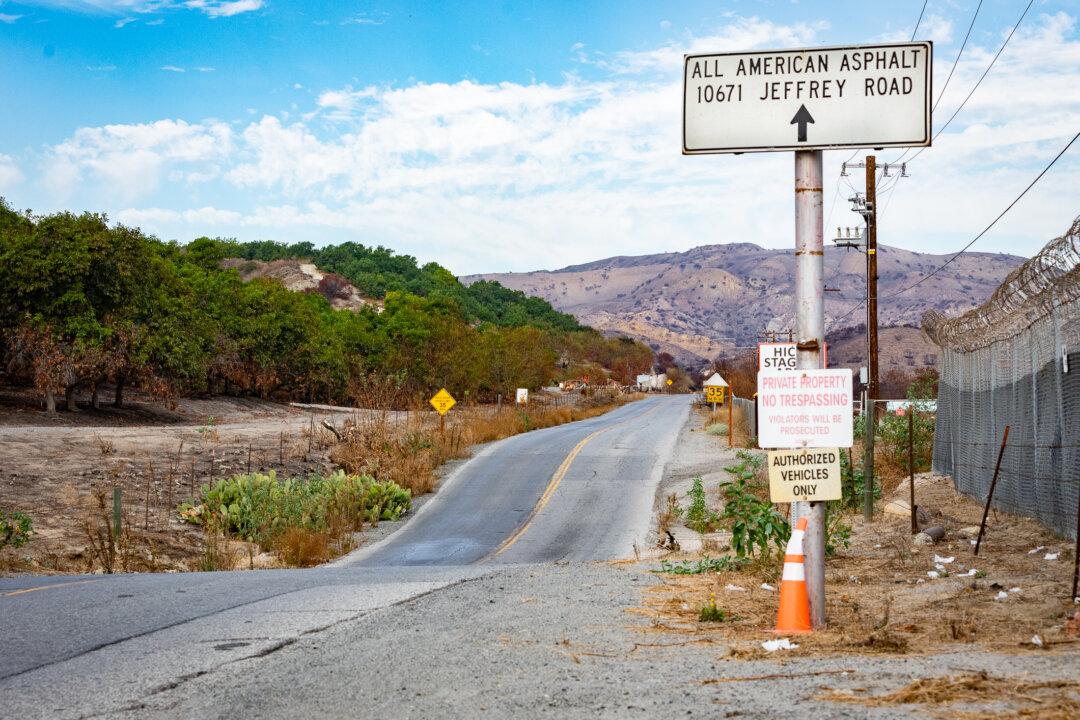The smell of burnt rubber and worries over air pollution are keeping some residents up at night in neighborhoods surrounding an asphalt-mixing plant in Irvine, California. The air, they say, is so foul they have to close their windows.
At a community meeting led by the South Coast Air Quality Management District (AQMD) on Dec. 9, more than a dozen residents demanded answers from a panel of air quality experts and enforcement officials.





